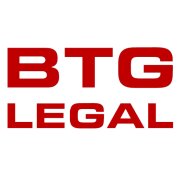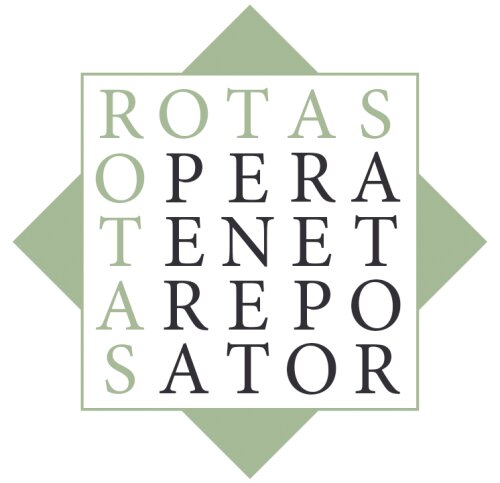Best Biotechnology Lawyers in Italy
Share your needs with us, get contacted by law firms.
Free. Takes 2 min.
Or refine your search by selecting a city:
List of the best lawyers in Italy
About Biotechnology Law in Italy
Biotechnology in Italy encompasses a wide range of applications, including agriculture, pharmaceuticals, and environmental management. Italy has a robust biotechnological sector, driven by scientific research and innovation. This field is of strategic importance, contributing significantly to economic development and addressing global challenges such as health and food security. Since biotechnology involves the use of living organisms and biological systems, it is highly regulated to ensure ethical and safe practices, making legal guidance essential for those involved in this industry.
Why You May Need a Lawyer
Individuals and businesses may require legal assistance in biotechnology for various reasons:
- Intellectual Property: Protecting inventions and patents involving genetic engineering and biotechnology products.
- Regulatory Compliance: Ensuring compliance with national and EU regulations concerning clinical trials, product approvals, and ethical guidelines.
- Contractual Agreements: Drafting and negotiating agreements for collaborations, licensing, and technological transfers.
- Dispute Resolution: Resolving conflicts related to patents, intellectual property rights, or breaches of contract.
- Bioethics: Addressing ethical issues related to genetic manipulation, cloning, and the use of biotechnology in human or animal health.
Local Laws Overview
Biotechnology in Italy is regulated by both national and European Union laws, ensuring that bioethical standards are met while promoting innovation. Key legal considerations include:
- Intellectual Property: Italy adheres to the European Patent Office regulations, providing legal frameworks for biotechnology patents.
- Clinical Trials and Medicinal Products: The Italian Agency of Medicines (AIFA) oversees clinical trial regulations, aligning with EU directives.
- Genetically Modified Organisms (GMOs): Strict regulations govern GMOs, requiring rigorous testing and compliance to ensure environmental and consumer safety.
- Data Protection: GDPR compliance is crucial, particularly in handling genetic and health-related data.
Frequently Asked Questions
Is patenting biotechnological inventions possible in Italy?
Yes, patenting biotechnology inventions is possible, provided they meet the criteria of novelty, inventiveness, and industrial applicability. The European Patent Office handles such patent applications.
What ethical considerations are involved in biotechnology?
Bioethics in Italy scrutinizes the implications of genetic engineering, ensuring respect for human dignity, and considers environmental and safety concerns of biotechnological applications.
How are GMOs regulated in Italy?
GMOs are extensively regulated, with stringent controls on market approval and cultivation, aligning with EU legislation to protect public health and the environment.
What is the role of the Italian Agency of Medicines (AIFA)?
AIFA is responsible for the regulation of pharmaceuticals and clinical trials, ensuring compliance with national and European standards for safety and efficacy.
Can biotechnology data be protected under Italian law?
Yes, biotechnology data, particularly genetic data, is protected under GDPR, ensuring privacy and data protection in research and commercial usage.
How do I resolve a biotechnological patent dispute?
Patent disputes can be resolved through litigation, arbitration, or mediation. Consulting a lawyer specialized in intellectual property is recommended.
What are the penalties for non-compliance with biotechnology regulations?
Penalties can include fines, revocation of licenses, and suspension of business operations. Non-compliance with data protection regulations can also lead to substantial fines.
How important is collaboration in biotechnology in Italy?
Collaborations between research institutions and industry are crucial for innovation and development in biotechnology, often requiring legal agreements for technology transfer and intellectual property sharing.
Are there funding opportunities for biotechnology startups in Italy?
Yes, there are various funding opportunities available through government grants, private investments, and European Union programs targeted at supporting biotechnological innovations.
What legal documents are needed for starting a biotech company?
Key documents include incorporation papers, intellectual property registrations, regulatory compliance certifications, and contractual agreements for partnerships and collaborations.
Additional Resources
For further assistance, consider reaching out to:
- Italian Agency of Medicines (AIFA) - Oversees drug regulations and clinical trials in Italy.
- European Patent Office - Offers resources on patenting biotech inventions across Europe.
- Ministry of Health - Provides guidelines and regulations relevant to biotechnology and health-related innovations.
- Farmindustria - Represents pharmaceutical companies, providing updates on the sector's legal and regulatory affairs.
- National Bioethics Committee - Issues opinions on ethical matters concerning biotechnologies.
Next Steps
If you require legal assistance in biotechnology, consider the following steps:
- Assess Your Needs: Identify the particular areas where you need legal support, such as patents, compliance, or contractual issues.
- Consult a Specialist: Contact a lawyer specializing in biotechnology law to discuss your legal concerns and obtain specialized advice.
- Gather Documentation: Collect all relevant documents and information to provide your lawyer with a comprehensive view of your situation.
- Explore Resources: Utilize additional resources and organizations for guidance and support in understanding biotech regulations and compliance requirements.
Taking these steps helps ensure that you are well-prepared to address any legal challenges in the dynamic and evolving field of biotechnology in Italy.
Lawzana helps you find the best lawyers and law firms in Italy through a curated and pre-screened list of qualified legal professionals. Our platform offers rankings and detailed profiles of attorneys and law firms, allowing you to compare based on practice areas, including Biotechnology, experience, and client feedback.
Each profile includes a description of the firm's areas of practice, client reviews, team members and partners, year of establishment, spoken languages, office locations, contact information, social media presence, and any published articles or resources. Most firms on our platform speak English and are experienced in both local and international legal matters.
Get a quote from top-rated law firms in Italy — quickly, securely, and without unnecessary hassle.
Disclaimer:
The information provided on this page is for general informational purposes only and does not constitute legal advice. While we strive to ensure the accuracy and relevance of the content, legal information may change over time, and interpretations of the law can vary. You should always consult with a qualified legal professional for advice specific to your situation.
We disclaim all liability for actions taken or not taken based on the content of this page. If you believe any information is incorrect or outdated, please contact us, and we will review and update it where appropriate.
Browse biotechnology law firms by city in Italy
Refine your search by selecting a city.
















